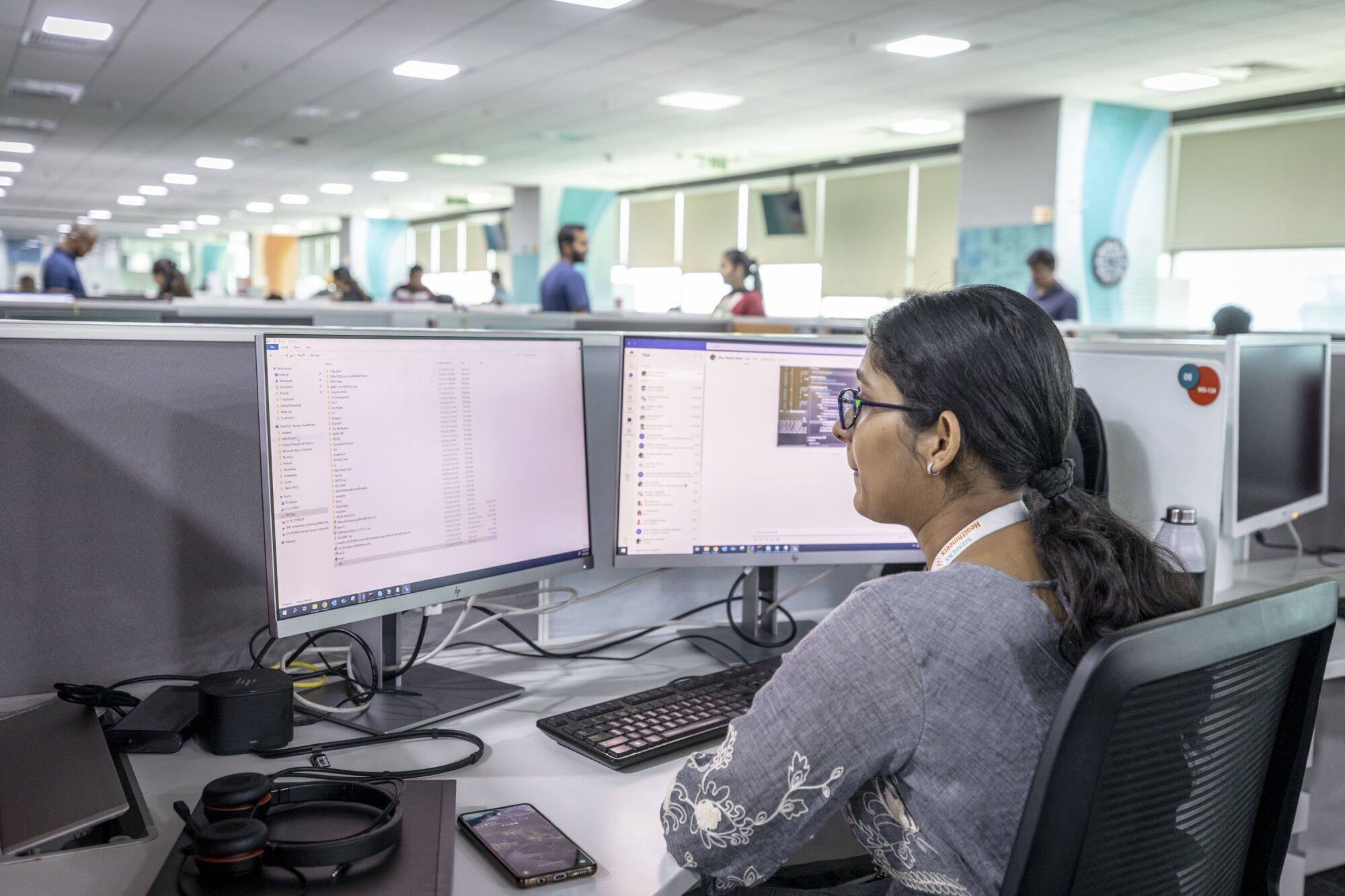Concerns Grow in India’s Thriving Back-Office Sector Amid Rising Global Trade Barriers

India’s Global Capability Centres (GCCs) are experiencing remarkable growth, with multinational companies increasingly relying on these offshore units for a variety of strategic functions. Originally established as back-office support, these centres have evolved to handle complex tasks, including data analytics and research and development. With over 1,700 GCCs employing two million people and generating $65 billion in annual revenue, the sector is poised for further expansion, despite potential challenges from global trade dynamics.
Transformation of Global Capability Centres
The evolution of India’s GCCs is exemplified by the experience of British retail giant Tesco. Initially, Tesco’s operations in India focused on IT and finance to support its UK business. Today, its Bengaluru campus has transformed into a strategic hub, managing intricate tasks such as vendor due diligence and customer behavior forecasting. Sumit Mitra, CEO of Tesco Business Solutions, describes the centre as a “strategic engine” that plays a crucial role in the company’s operations. This shift reflects a broader trend in which GCCs have transitioned from simple call centers to vital components of multinational corporations, handling diverse functions from IT to finance and even AI-led automation.
The growth of GCCs is not merely about cost savings; it also involves leveraging India’s vast talent pool. Mitra emphasizes the concept of “intellectual arbitrage,” highlighting the availability of skilled professionals across various domains. This talent abundance is a significant factor driving the expansion of GCCs, making India an attractive destination for global companies seeking to enhance their operational capabilities.
Market Growth and Future Prospects
The number of multinationals operating GCCs in India has surged from 700 in 2010 to over 1,700 as of last year. These centres employ around two million people and contribute significantly to the economy, generating $65 billion in annual revenue. Despite potential challenges such as rising trade barriers and backlash against outsourcing, consulting firm EY predicts that the GCC market could exceed $100 billion by 2030, growing at a compounded rate of 14%.
India’s rapid growth in artificial intelligence (AI) talent further bolsters its position as a leading hub for GCCs. The country is now recognized as one of the fastest-growing AI talent centers globally, attracting companies looking for expertise in digital, data, and engineering fields. Dan Schiappa from Arctic Wolf, a cybersecurity firm, notes that the concentration of talent in Bengaluru allows companies to establish a significant presence quickly. Additionally, supportive government policies and the emergence of GCCs in tier-II towns are contributing to the sector’s expansion, as firms seek cost-effective talent and real estate options.
Challenges and Considerations Ahead
As the GCC sector continues to grow, it faces several challenges that could impact its future trajectory. Lalit Ahuja, whose company ANSR has established numerous GCCs in India, points out that many companies now view their Indian centres as “almost second headquarters.” This shift underscores the importance of addressing trade barriers, compliance issues, and infrastructure limitations that have not kept pace with rapid GCC expansion.
Reports indicate that many GCCs in Bengaluru are struggling with basic infrastructure, such as access to piped water, which highlights the urgent need for improvements. Furthermore, the geopolitical landscape poses additional risks, particularly with rising concerns in the US regarding outsourcing and potential tariffs on IT services. Ahuja warns that disruptive nationalist trends could hinder future growth, emphasizing the need for India to engage with global partners to safeguard its GCC industry.
The Redefinition of Control in Global Operations
The rise of GCCs is reshaping the narrative around global business operations. Unlike traditional outsourcing, which primarily involved support functions, GCCs are redefining control over product and service delivery. This shift could be perceived as a threat in the current geopolitical climate, where there is increasing scrutiny on offshoring jobs. Ahuja notes that GCCs carry an “implied sovereignty angle,” as they represent a significant shift in where companies choose to base their operations.
As the industry evolves, it is essential for India to navigate these challenges while capitalizing on its strengths. The future of GCCs in India will depend on the country’s ability to enhance its business environment, address infrastructure needs, and maintain its appeal as a destination for global talent. The ongoing transformation of these centres signifies a pivotal moment in the global business landscape, with India at the forefront of this change.
Observer Voice is the one stop site for National, International news, Sports, Editor’s Choice, Art/culture contents, Quotes and much more. We also cover historical contents. Historical contents includes World History, Indian History, and what happened today. The website also covers Entertainment across the India and World.
Follow Us on Twitter, Instagram, Facebook, & LinkedIn

